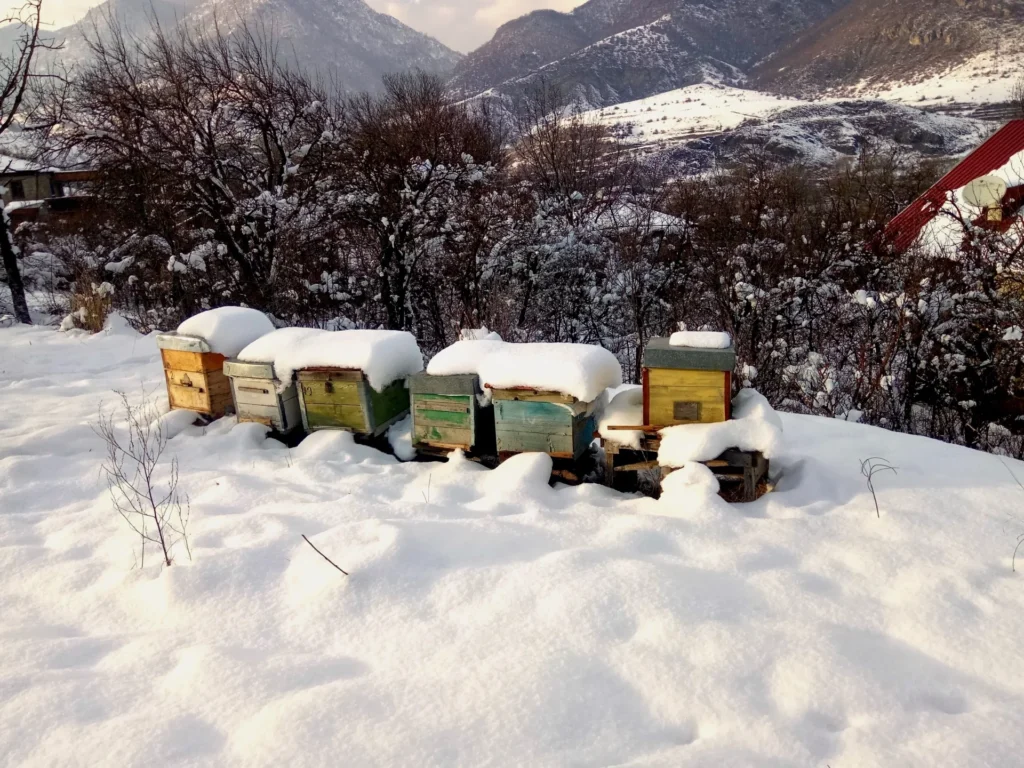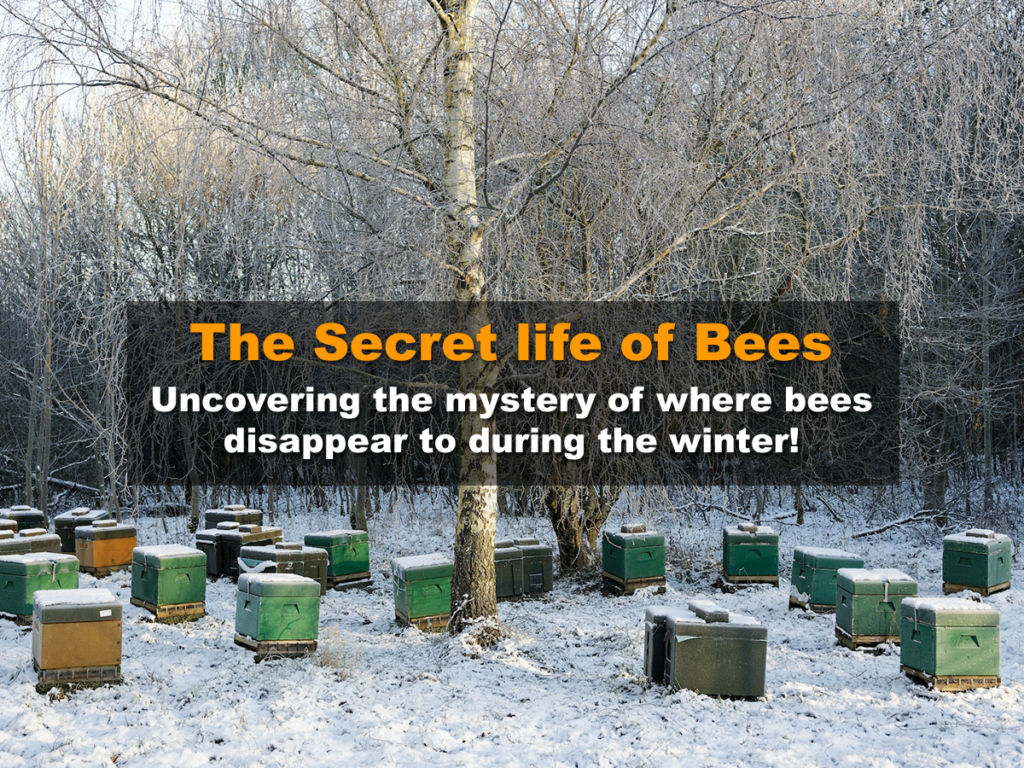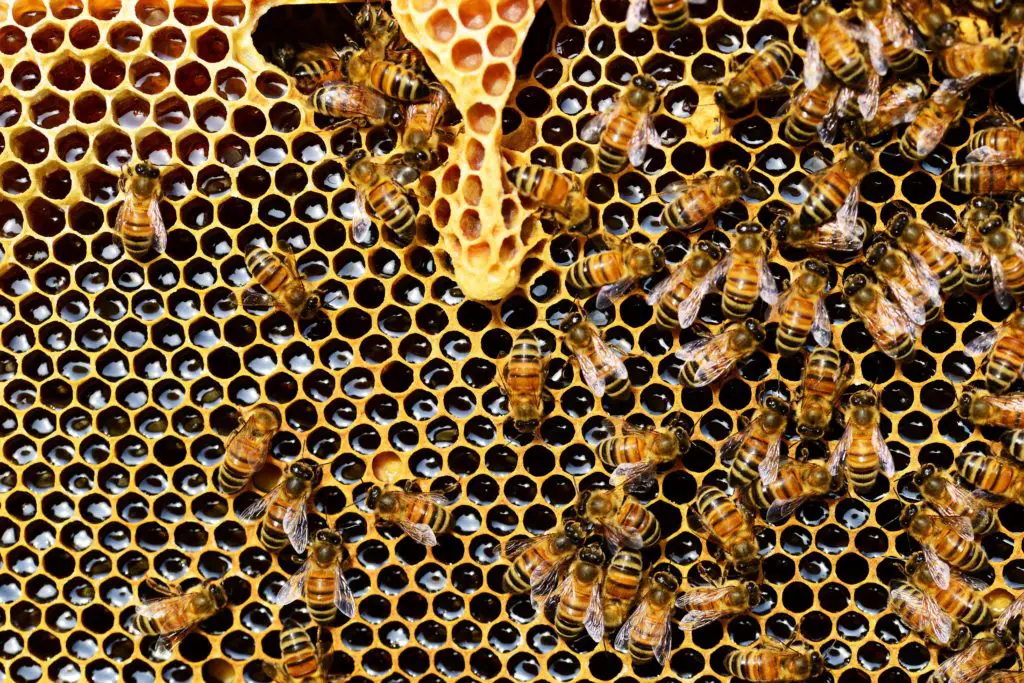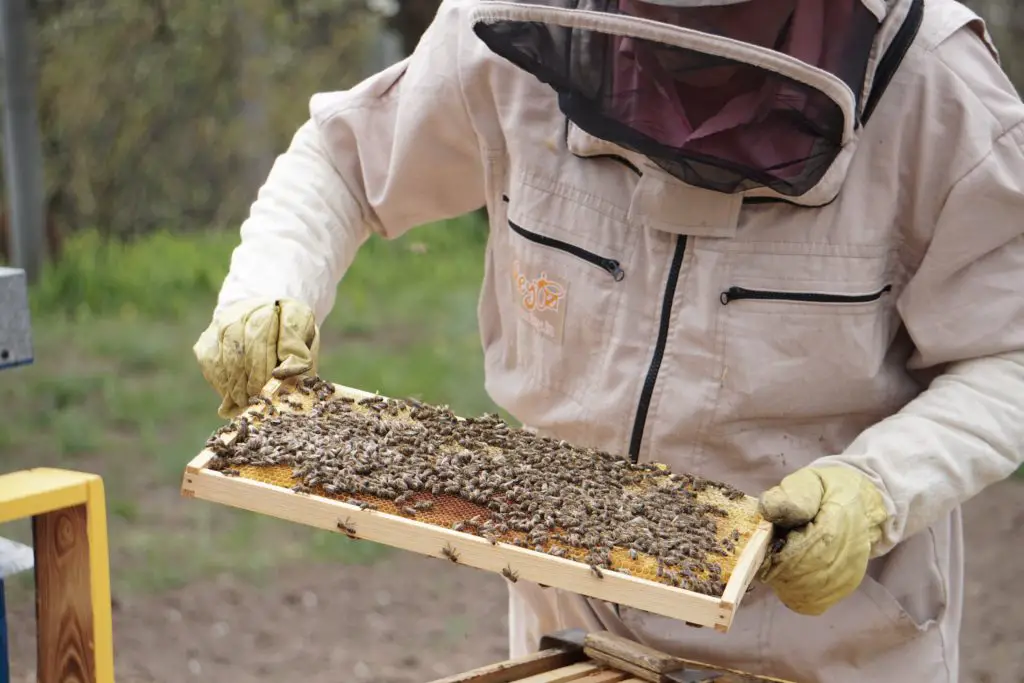Affiliate Disclaimer - As an Amazon Associate I earn from qualifying purchases.
It supports the website. So, Thank you
When spring and summer come around, we start to see nature come back to life. One of the creatures that signal a change in the season is the bee which you only really ever see in spring and summer. But that makes you wonder where do bees go in winter? Do bees hibernate or are they just avoiding going out in the cold?
It’s a bit of both. Bees don’t hibernate in the sense of entering a total state of dormancy. Instead, honey bees will gather in the hive, becoming partially dormant in order to keep warm.
However, it really depends on what species of bee you’re talking about. For example, bumble bees do hibernate whereas a lot of solitary bee species will overwinter in a birth cell. Let’s take a closer look at what our little friends do over the winter.
Why Don’t I See Bees In Winter?
On the extremely rare occasion that you see a bee in winter, you’ll likely be amazed that these summer creatures are out and about. It almost comes as something of a surprise. That’s because we’re not used to seeing them at this time of year and it’s usually because they’re hiding away in their nest or hive.
During winter, food sources are low as most flowers don’t bloom. Since bees collect pollen and nectar from flowers to make food, they have to ensure that they’ve collected enough over spring and summer to sustain the colony in the colder months.
At this time, the bees will also gather in the hive and form a huddle in order to keep warm. We could use the word hibernation for this but the bees aren’t in a complete state of dormancy so it might not be what many people imagine hibernation to be.
Moreover, different species of bees behave in different ways over winter. With that in mind, let’s look at what they all get up to.
How Different Types Of Bees Spend The Winter
Honey bees live in a hive and, if you’re a beekeeper, these are the type of bees you’ll be looking after. It’s too cold for the bees to continue working and they’ll have trouble flying (more on that later) so staying in the hive is the best way to survive.
However, it’s not the bulk of the colony that is the main concern; the entire hive has the queen in mind and they’ll gather around her, putting her at the center of the huddle so she stays warm.
As I have mentioned, honey bees will make enough food to sustain the hive over winter. But there may be some warmer winter days when the bees venture out in search of more food. This isn’t hugely common, however.
If you’re taking care of a beehive then you may need to provide your colony with some additional food over winter. The best option is sugar syrup as this will keep the bees’ energy levels up during the colder months. Wild colonies often struggle to survive a very cold winter but managed hives stand a much better chance thanks to the extra food given to them by their keepers.
The bumblebee is another very common species seen in North American gardens and locations all around the world. There are around 250 different bumblebee species in the world but they all behave in a very similar manner when it comes to winter.
Bumblebees have an annual lifecycle. This means that, by the time winter arrives, the old queen will have died. But not before she has mated and produced a new queen. A newly mated queen will hibernate during the winter by burrowing under the ground. She might even find a cozy stone or log to hide under.
Solitary bees spend their lives alone, as their name suggests. They only really come together when it’s time to mate but of course, the behavior of any given solitary species will differ especially when you consider that there are around 200 solitary bee species.
Each type of solitary bee will overwinter in a slightly different way. However, in most cases, the adults will die before the cold season begins and it’s actually the newly laid eggs that will ‘hibernate’ until spring comes around.
These eggs are laid in burrows and sealed. The females will leave a food store for the larvae and ensure the sealed burrow is protected from water and the cold. It’s then merely a case of waiting for the weather to warm up when the new bees will emerge. However, one of the main reasons that you may see a bee earlier in the year is that the burrows are often disturbed by humans or wildlife, causing the bees to leave early.

Why Do Bees Hibernate In The Winter?
The main reason that bees hibernate during winter is because of a lack of food. These creatures collect pollen and nectar from flowering plants and in winter, most flowers die off.
What’s more, bees don’t do particularly well in cold weather and so it’s important that they have some kind of shelter.
There are exceptions to bee hibernation. For example, in warmer climates, where the winters are still conducive to flowers blooming, bees may be active all year round.
Can Bees Fly In The Cold?
Another reason that honey bees are not seen during the winter is that they simply cannot fly in the cold. One of the main issues is that the bee’s muscles will seize up when their body temperature drops and this renders their wings useless.
You may have seen a bee on the ground that appears perfectly healthy. But if it’s a cold day, the chances are that the poor bee just can’t lift herself off the ground. Unless the weather warms up, this situation spells disaster for the bee.
It’s widely agreed that temperatures above 50 ºF are most suitable for bees. When the mercury drops below this, bees will venture inside and stay there until things warm up again. However, this largely refers to lengthy flights. Where the temperature is a little lower than 50ºF, bees may still be able to go out for very short periods which is likely why they’re sometimes seen on slightly warmer winter days.
Final Thoughts
We’re all used to seeing bees buzzing about in the summer but where do bees go in winter?
It’s too cold for bees to be out and about in winter and there aren’t as many food sources. It’s for this reason that the bees will work hard over the summer to ensure they have large food stores. They’ll then gather in their hive, huddling together to keep warm during the colder months.
But how a bee behaves in winter is largely down to its species. Some will lay their eggs which will remain in the ground until spring comes around whereas others will just die off.




